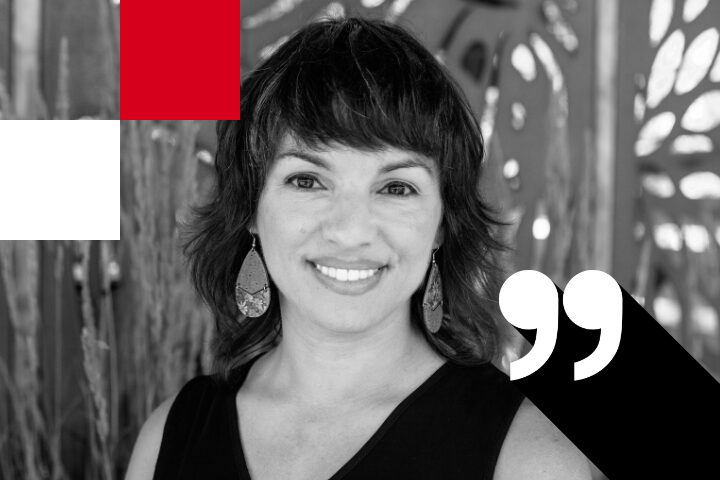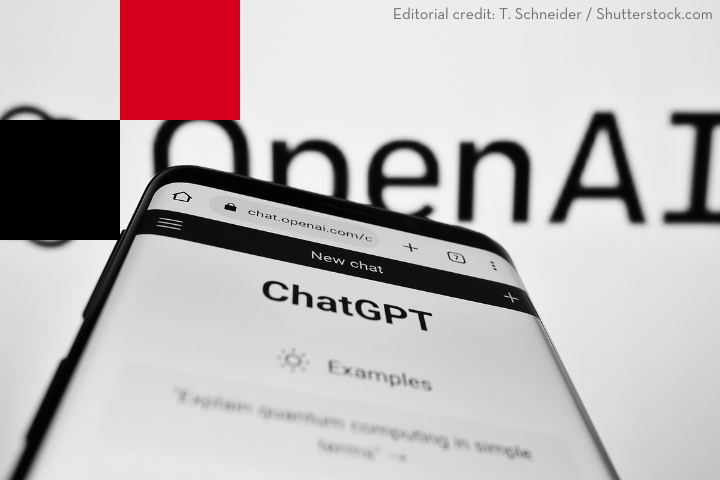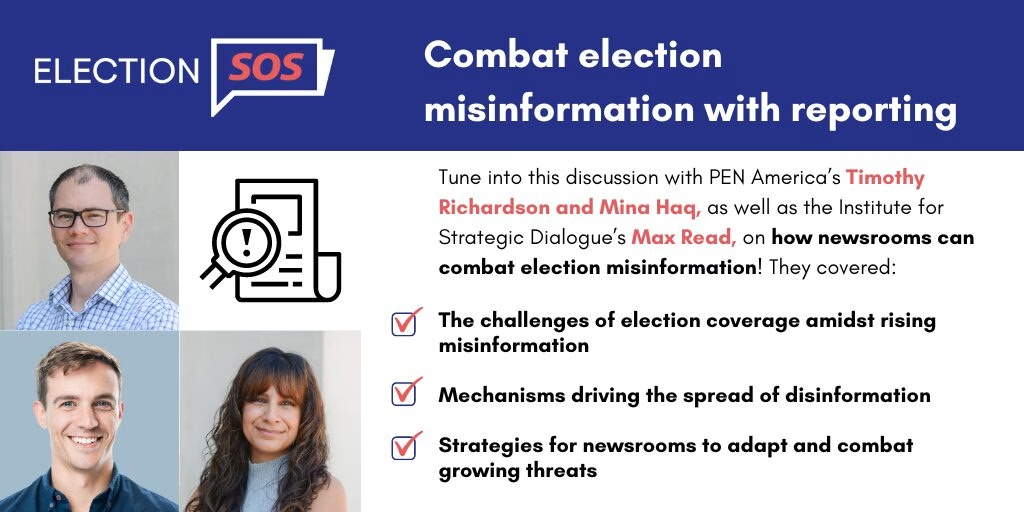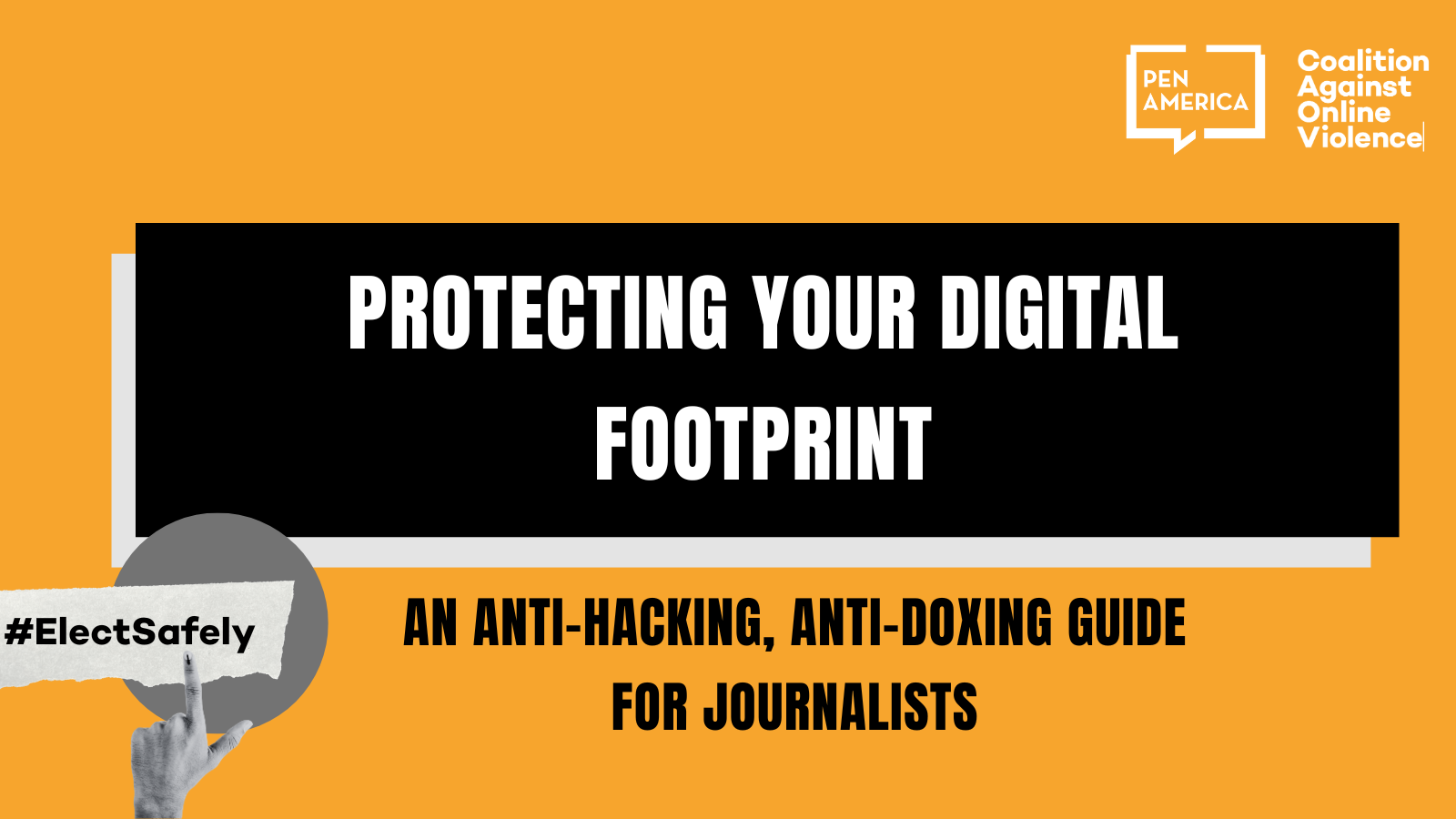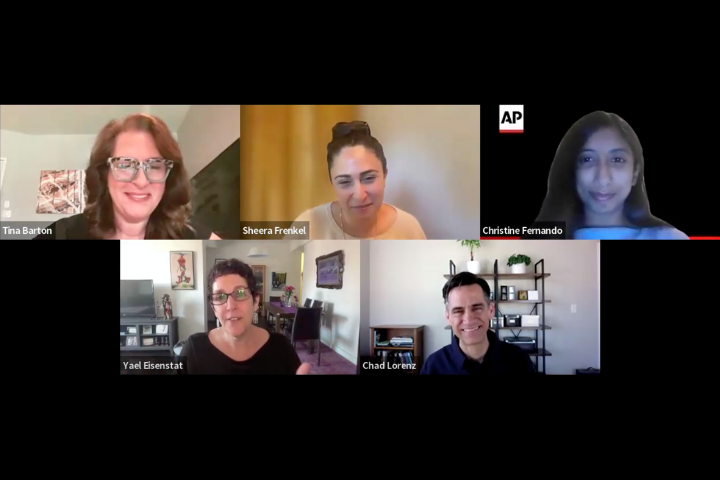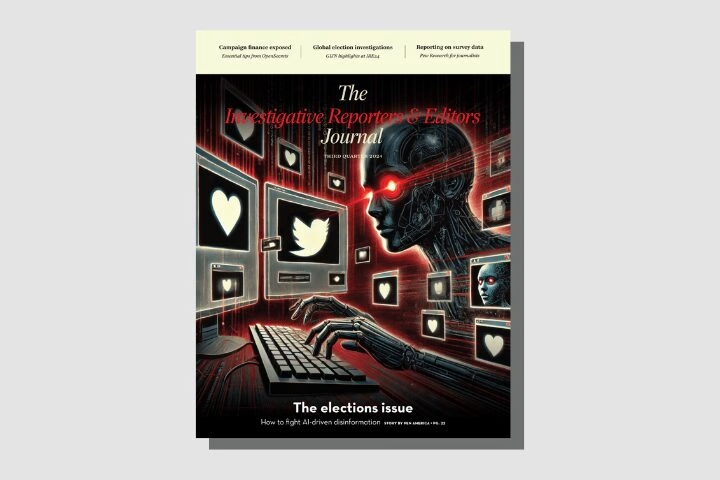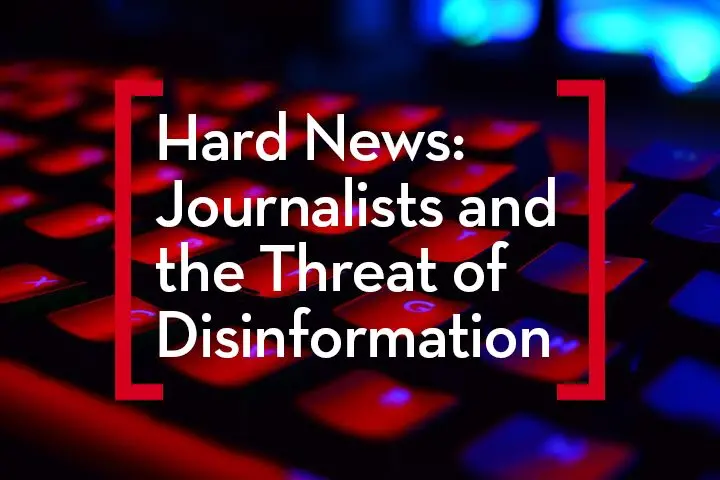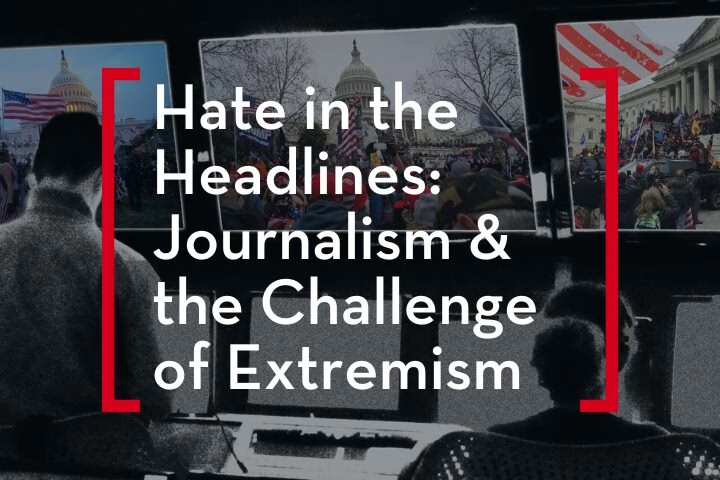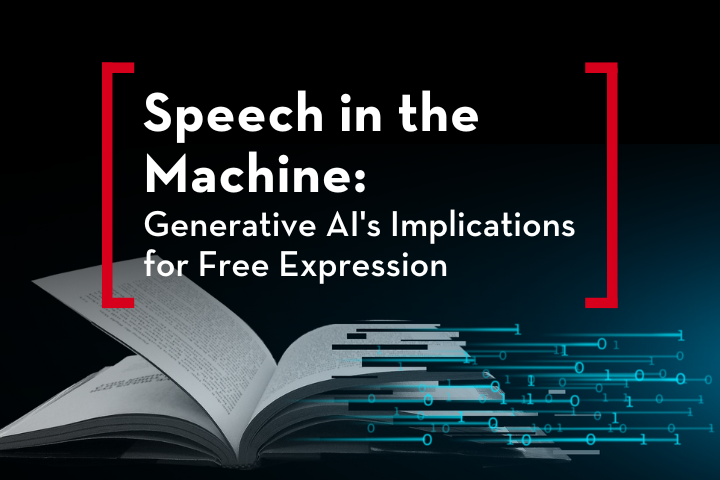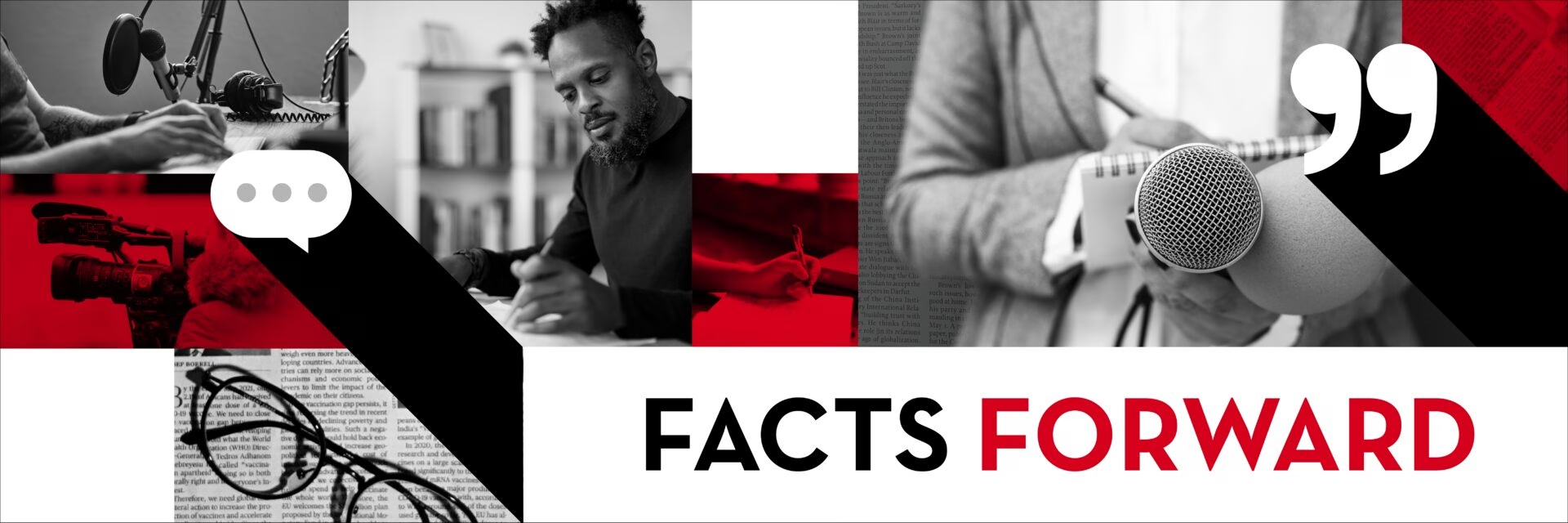
A Journalist’s Guide to Combating Disinformation
Disinformation poses a fundamental threat to free expression and democracy—one that is increasingly poised to disrupt the practice of journalism. In a nationwide survey of over 1,000 reporters and editors, more than 90 percent told PEN America that disinformation has impacted their work in recent years, with 76 percent saying that they deal with disinformation regularly—whether writing about it, debunking it, explaining it, or uncovering it. Combating disinformation is a consuming challenge: one that imposes professional burdens, demands new skills, and exacts a personal toll. As newsrooms navigate the challenges presented by disinformation, PEN America has developed resources to help journalists detect, monitor, and report on disinformation and build greater trust with their communities.
We believe that an empowered public and vibrant news ecosystem are the best means of countering disinformation’s pernicious effects. As the disinformation landscape evolves, PEN America continues to update this space to address new and emerging trends. Be sure to check back regularly for more content, recommendations, and best practices to help journalists and newsrooms combat disinformation and foster a more informed public.

Navigating Disinformation When Covering Breaking News
When bad actors take advantage of rapidly developing events—and the heightened emotions surrounding them—to spread disinformation, journalists must take extra care to protect themselves and the public from false narratives. This guide offers a step-by-step approach to anticipating, identifying, and reporting on disinformation while navigating the fast-moving landscape of breaking news.
A condensed, checklist version of our Journalist’s Guide to Navigating Disinformation When Covering Breaking News can be found here.
Navigating Disinformation on Social Media
With the power to amplify disinformation within seconds, social media has become a powerful tool for spreading false narratives. Whether you’re a journalist reporting on social media content, or looking to use your own social media accounts to build audience trust, this guide offers tips for spotting disinformation on social media, debunking false narratives, and sharing your reporting responsibly.
A condensed, checklist version of our Journalist’s Guide to Navigating Disinformation on Social Media can be found here.


Detecting Disinformation: How to Use Online Verification and Bot Detection Tools
A step-by-step guide for journalists on how to use some of the most popular reverse image search tools and bot detection tools.
Building Disinformation Resilience: How to Grow Audience Trust and Defend Against the Spread of False Information
One of the most effective ways for journalists to defend against mis- and disinformation is to establish strong relationships with their audiences. In this guide, we offer recommendations to help journalists and newsrooms build greater trust and better serve their communities.


Navigating Generative AI and the Threat of Disinformation
Whether you’re considering using generative AI in your newsroom, or wondering how to guard against potential mis- or disinformation created by AI tools, PEN America has compiled recommendations to help journalists navigate this emerging technology.
Understanding the Psychology of Disinformation
Why does disinformation spread so rapidly and what makes us vulnerable to false narratives? This guide provides an introduction for journalists on how bad actors use psychological principles to help spread disinformation.

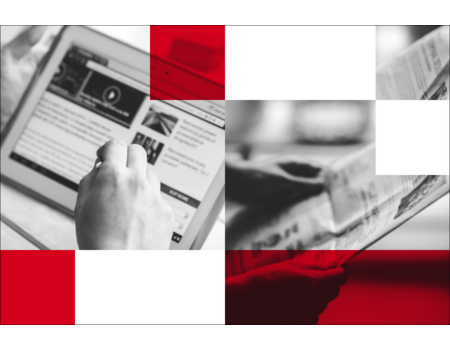
Primer for News Consumers on Spotting and Combating Disinformation When News Breaks
The threat of disinformation is nothing new, but amid the rise of highly sophisticated and accessible generative AI tools, increased polarization, and a declining trust in the news, spotting falsehoods is growing more difficult. As we navigate an onslaught of misleading content, it is vital that we all become more discerning consumers of information and news.
How Fact-checking Works – and Why It Matters
Fact-checking serves an important function in our news and politics, but it’s not well understood by the general public. What’s involved in fact-checking? How can we recognize when something we’re reading has been adequately verified? Understanding how fact-checking works can help us better determine when news and information is reliable and trustworthy – or not.
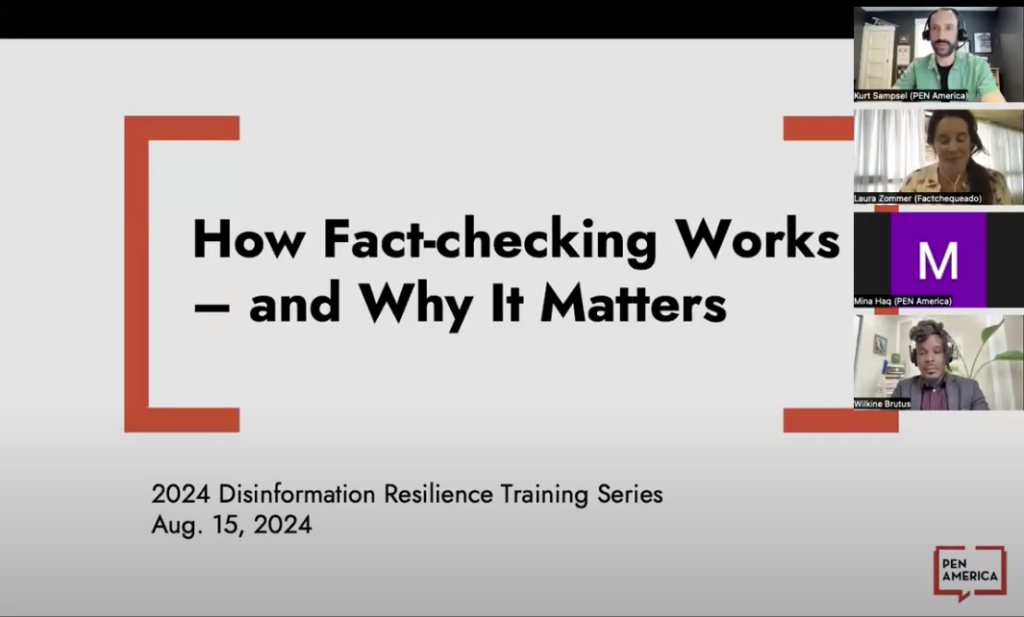
Facts Forward Interview Series
Featuring journalists and experts with extensive experience in navigating political and other forms of disinformation, the series aims to provide best practices, insights into how to identify and counter disinformation, case studies, and other tips from practitioners.
Learn More
PEN America experts also featured in:

Journalists can’t win the fight against fake news without citizens’ help
The future of journalism stands at a crossroads. The solutions aren’t easy. But here’s the good news: Evidence shows numerous opportunities for citizens to pitch in.
Reports
Resources
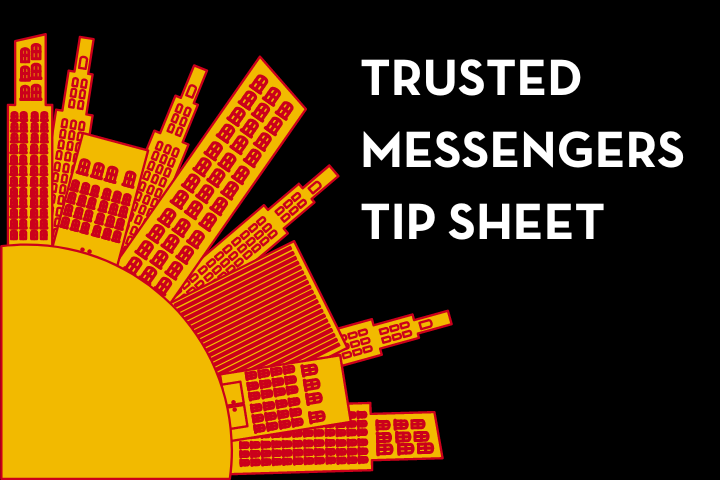
Trusted Messengers: How Community Engagement Journalism is Uniquely Positioned to Slow the Spread of Mis/Disinformation
Tips for journalists and journalism-adjacent professionals who are committed to fighting mis/disinformation through community engagement practices.
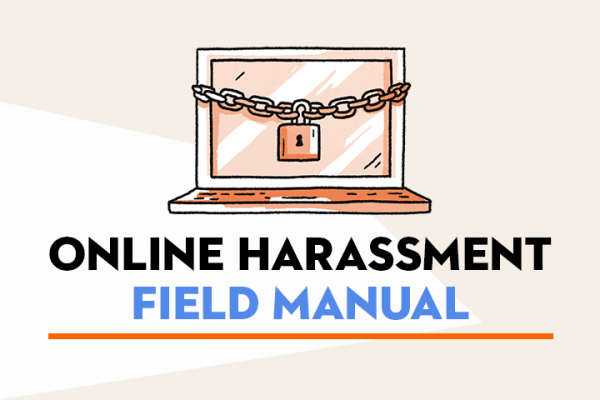
Online Harassment Field Manual
Whether you’re experiencing or witnessing online abuse, this Field Manual offers concrete strategies for how to defend yourself and others.

The Hill: A new Twitter policy cripples journalists’ efforts to halt disinformation
Twitter’s newly amended application programming interface (API) policy may rob journalists of access to bot detection tools, which are critical to identifying and understanding the spread of disinformation on social media.

